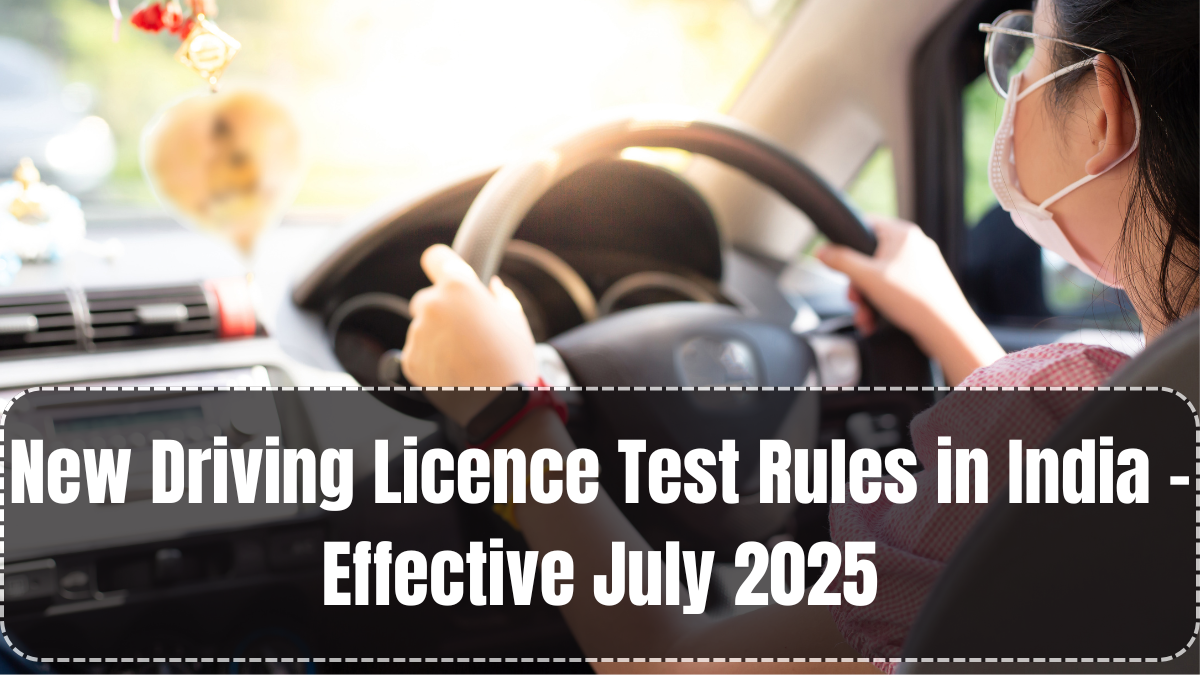From July 1, 2025, getting a driving licence in India is no longer the same. The New DL Test Rules India have introduced a simplified, tech-enabled, and learner-friendly testing system aimed at improving safety and transparency across RTOs nationwide.
The new rules eliminate manual assessments, reduce the role of middlemen, and streamline the overall application process. Whether you’re a first-time driver or someone upgrading to a commercial licence, understanding these changes will help you prepare confidently.

Key Highlights of the New DL Test Format
The New DL Test Rules India apply to both two-wheelers and four-wheelers and include:
-
Automated driving test tracks in most metro and Tier-1 cities
-
Elimination of the need for an RTO inspector to sit in the vehicle
-
Use of sensors and cameras to evaluate driving skill with real-time scoring
-
No need to visit RTO if licence test is conducted at authorized private training centers
-
Focus on traffic sign understanding, emergency handling, and reverse parking ability
These changes aim to make the process more objective, fair, and digital-first.
Types of Tests Now Mandated
Under the New DL Test Rules India, the following structured tests must be passed:
| Vehicle Type | Test Components Included |
|---|---|
| Two-Wheelers | Zig-zag movement, sudden stop, and balance on slope |
| Four-Wheelers | Reverse parking, stop/start on slope, lane following |
| Commercial | Load handling, braking with payload, tight U-turns |
The entire process is digitally tracked and stored for record-keeping and dispute resolution.
Role of Authorized Training Centers
One of the biggest shifts in the New DL Test Rules India is the approval of private driving schools as official testing authorities.
-
Candidates who complete training at accredited schools no longer need to visit an RTO
-
Tests are conducted and recorded at the school’s in-house track
-
Passing certificate is uploaded directly to the Parivahan portal
-
Government aims to reduce pressure on RTOs by outsourcing testing
Over 1,200 such centers across India have been approved as of July 2025.
Updated Rules for Learner’s Licence
The rules for obtaining a learner’s licence have also been refined:
-
Online LL test is now available in 15 Indian languages
-
Candidates must complete an interactive video module before taking the test
-
Validity of learner’s licence extended to 12 months (from 6 months)
-
Eye test certificates from authorized optometrists are now accepted digitally
These steps ensure more accessibility, especially for rural and non-English-speaking applicants.
What’s Removed in the New System
The New DL Test Rules India have also removed several outdated elements from the process:
-
Manual test scoring by RTO inspectors
-
Physical driving test at overcrowded RTO tracks (if tested at accredited center)
-
Repetitive documentation at every stage (now digitized)
-
Non-transparent grading systems with no written feedback
Instead, candidates now receive automated pass/fail reports and feedback based on performance.
FAQs
Is it compulsory to go to an RTO for the driving test?
No. If you take your test at an authorized training center, you can skip the RTO visit entirely.
What happens if I fail the new automated test?
You can reattempt the test after 7 days. Your scorecard will show which areas need improvement.
Is the test easier or harder now?
It’s more structured and objective. While the standard is high, there’s no human bias in scoring, which benefits genuine learners.
Are the new rules applicable in all states?
Yes, the New DL Test Rules India are being implemented nationwide, although some remote districts may still transition gradually.
Can I take the learner’s test from home?
Yes, the online learner’s licence test is now available in most states with webcam monitoring and video-based learning modules.
Click here to know more.
